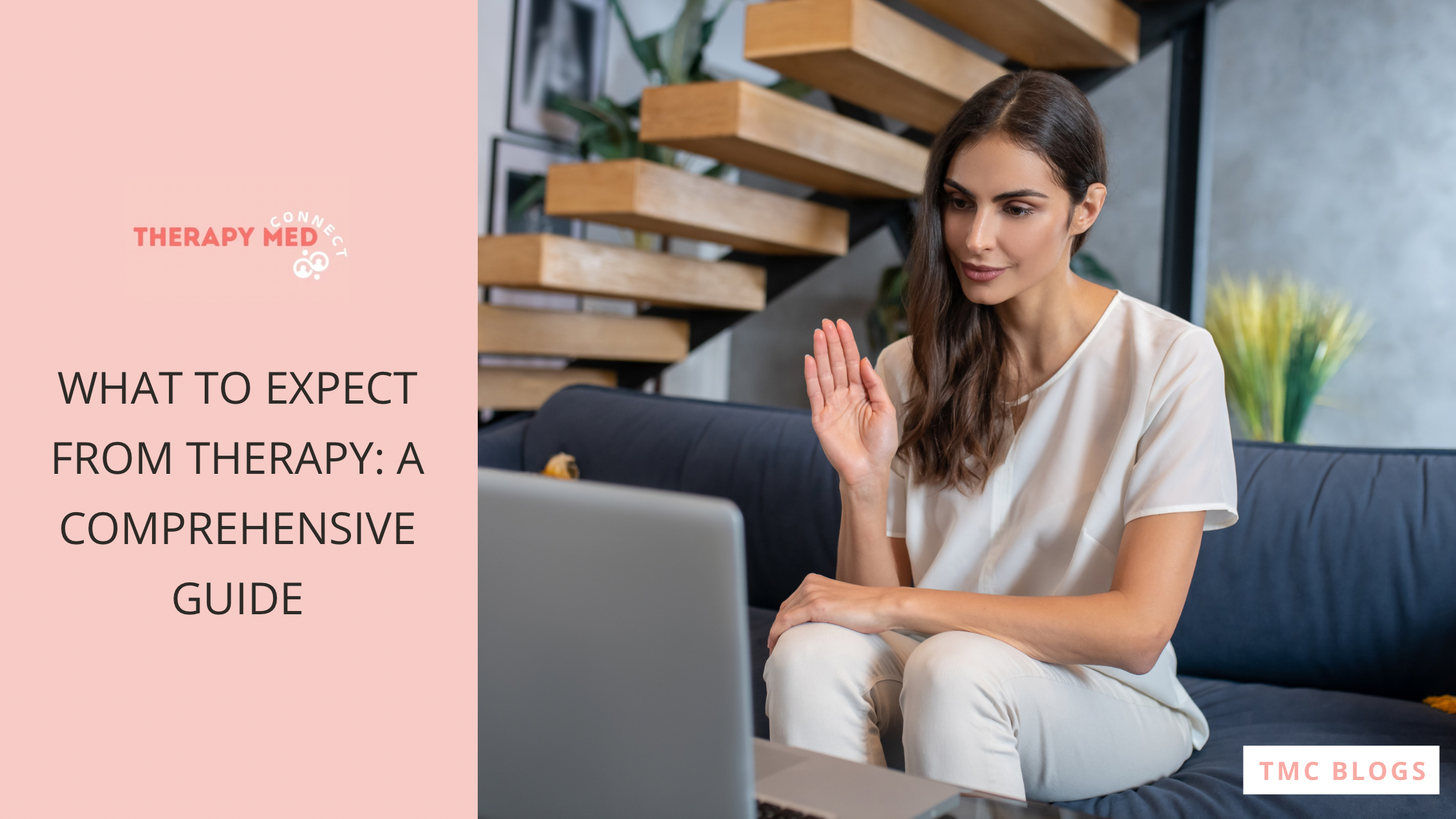What to Expect from Therapy: A Comprehensive Guide

Starting therapy is a significant step towards better mental health, yet it can often feel daunting if you’re unfamiliar with the process. This guide aims to demystify what to expect from therapy, helping you feel more prepared and confident as you embark on this journey.
Understanding Therapy
Therapy, at its core, is about solving problems and working towards healthier thoughts, actions, and relationships. Your experience can vary greatly depending on the type of therapist you choose, the issues you're seeking help for, and your personal goals. There is no one-size-fits-all approach in therapy; different methods work for different people.
Types of Therapy
Several therapeutic techniques have been shown to be effective in various situations. Here are some of the most common:
- Cognitive Behavioral Therapy (CBT): This method helps you understand how your thoughts, feelings, and behaviors are interconnected. CBT can improve self-awareness and develop healthier coping mechanisms by identifying and changing negative thought patterns.
- Dialectical Behavior Therapy (DBT): Initially developed for treating borderline personality disorder, DBT focuses on acceptance and change. It is also effective for other mental health conditions, helping individuals manage emotions and relationships more effectively.
- Client-Centered Therapy: This approach allows you to take the lead in discussions and solutions. It emphasizes personal growth and the development of self-awareness and self-acceptance.
- Psychoanalytic Therapy: Also known as psychodynamic therapy, this method explores unconscious thoughts and feelings that influence behavior, helping you gain deeper insights into your emotional life.
The First Therapy Session
The initial therapy session is an opportunity for you and your therapist to get to know each other and start building a therapeutic relationship. Here’s what you can generally expect:
- Introduction and Background: The therapist will ask about your reasons for seeking therapy, your current symptoms, and any previous therapy experiences. They might also inquire about your personal history, including family dynamics, career, and significant relationships.
- Goals and Expectations: You’ll discuss what you hope to achieve through therapy. Setting clear goals can provide a roadmap for your sessions and help measure progress over time.
- Questions from Both Sides: Feel free to ask the therapist about their background, approach to therapy, and experience with issues similar to yours. This mutual exchange can help you determine if they are the right fit for you.
Ongoing Therapy Sessions
As therapy progresses, sessions will become more focused on therapeutic work rather than just information gathering. The content of each session will depend on your needs, goals, and progress. Sessions may involve:
- Exploring Specific Issues: Delving into past experiences, current challenges, or emotions that are significant to your therapy goals.
- Developing Coping Skills: Learning techniques to manage stress, anxiety, and other emotional difficulties. These skills can be practiced and refined over time.
- Reviewing Progress: Periodically assessing how well therapy is meeting your needs and making adjustments as necessary. Open communication with your therapist about what is and isn’t working is crucial.
The Duration of Therapy
The length of therapy varies widely among individuals. Some people may achieve their goals in a few sessions, while others may need months or even years of ongoing support. It's important to set realistic expectations and understand that therapy is not about quick fixes. It’s a process that requires time and commitment.
Benefits of Therapy
Therapy can lead to numerous benefits that enhance your quality of life:
- Improved Communication Skills: Therapy helps you express your feelings and communicate more effectively with others. These skills can help resolve conflicts, set boundaries, and foster healthier relationships.
- Increased Self-Awareness: Through therapy, you can gain deeper insights into your thoughts, emotions, and behaviors. This self-awareness is crucial for personal growth and emotional regulation.
- Effective Coping Mechanisms: Therapy equips you with tools to handle stress, anxiety, and other challenges. These coping mechanisms can support you throughout your life, long after therapy has ended.
- Symptom Management: For those dealing with mental health conditions like anxiety or depression, therapy can significantly reduce symptoms and improve overall well-being.
Finding the Right Therapist
Choosing the right therapist is a vital part of the therapy process. Here are some tips to help you find a suitable match:
- Research: Look for therapists who specialize in the issues you’re facing. Check their credentials, experience, and therapeutic approaches.
- Consultation: Many therapists offer an initial consultation. Use this opportunity to ask questions and see if you feel comfortable with them.
- Referrals: Ask for recommendations from friends, family, or healthcare providers. Personal referrals can often lead you to trusted professionals.
Financial Considerations
Cost can be a significant factor in therapy. Here are some options to consider:
- Insurance Coverage: Check if your insurance plan covers therapy sessions. Understanding your benefits can help manage costs.
- Sliding Scale Fees: Some therapists offer sliding scale fees based on your income. Don’t hesitate to ask about this option.
- Community Resources: Many communities have low-cost or free therapy services. Local clinics, non-profits, and online platforms can provide affordable options.
Preparing for Therapy
To make the most of your therapy sessions, consider the following:
- Be Open and Honest: Therapy is most effective when you are truthful about your thoughts and feelings. Your therapist is there to help, not judge.
- Set Realistic Goals: Understand that progress takes time. Setting small, achievable goals can help you stay motivated and see tangible results.
- Take Care of Yourself: Therapy can be emotionally draining. Ensure you have time to rest and process after sessions.
Conclusion
Embarking on therapy can be a transformative journey towards better mental health and personal growth. By understanding what to expect, you can approach the process with confidence and openness. Remember, therapy is a collaborative effort, and finding the right therapist is key to your success. Whether you’re seeking to improve communication skills, gain self-awareness, develop coping mechanisms, or manage symptoms, therapy offers valuable tools and support to help you achieve your goals.